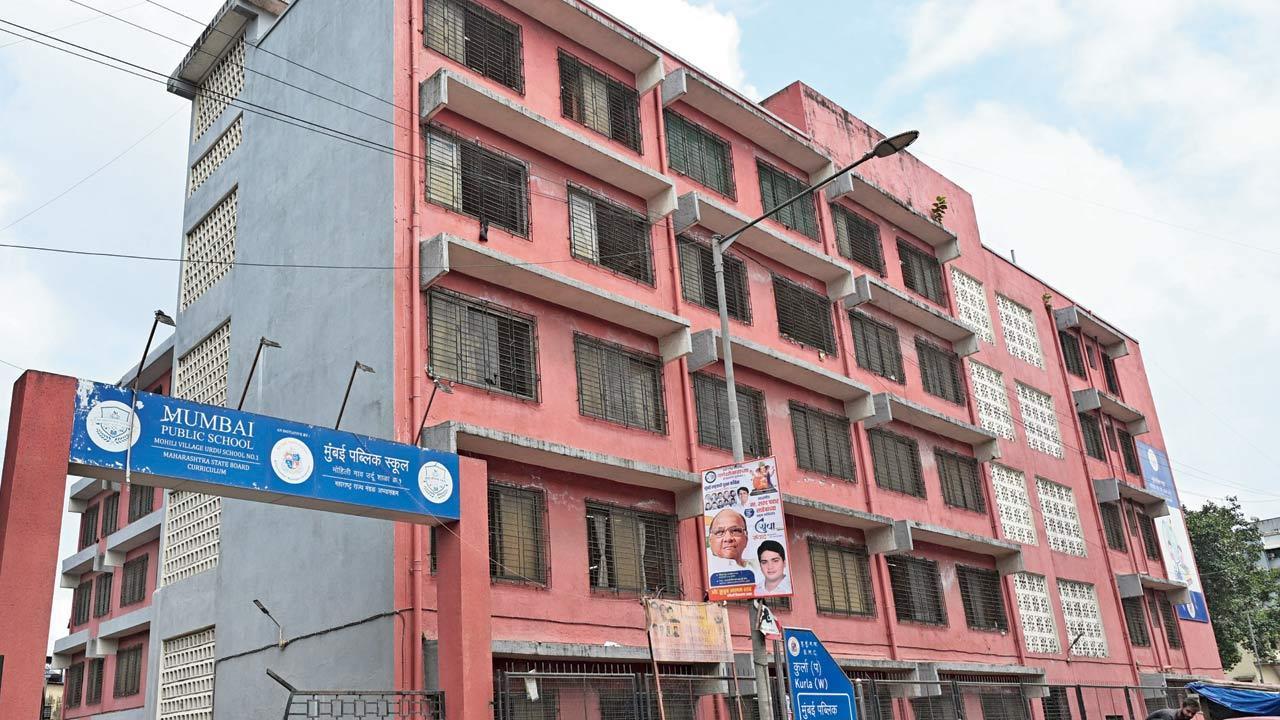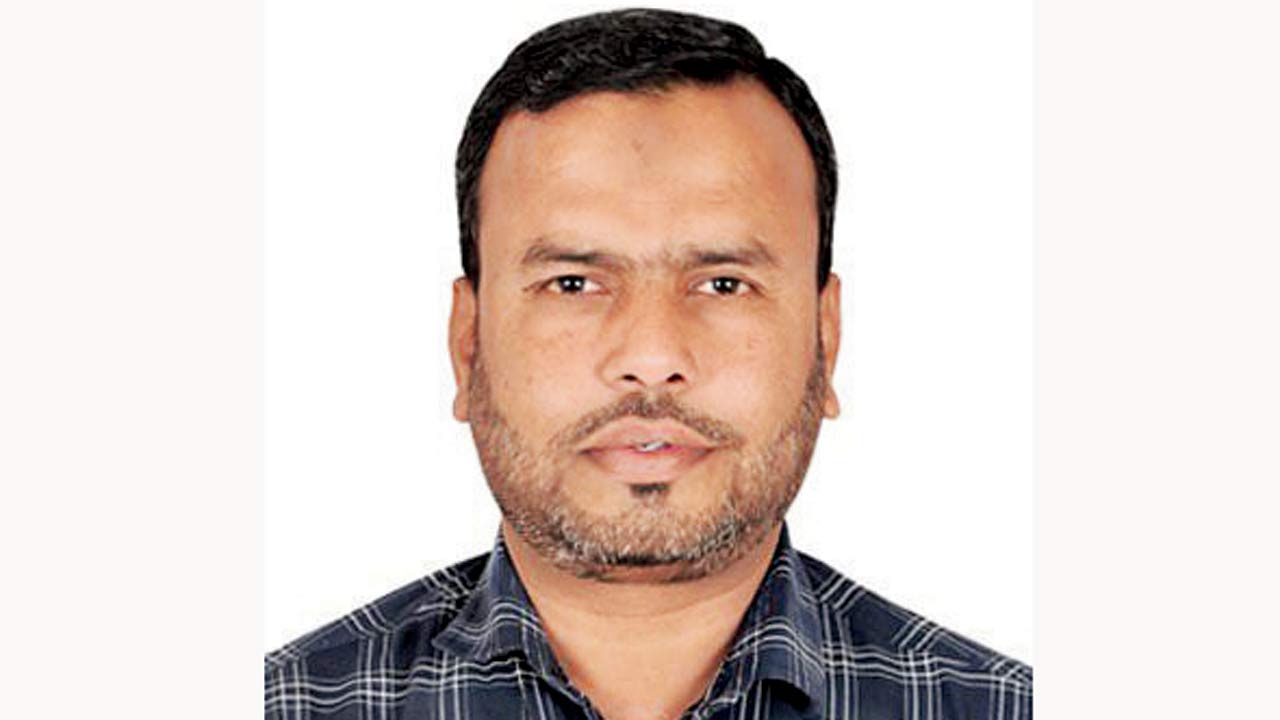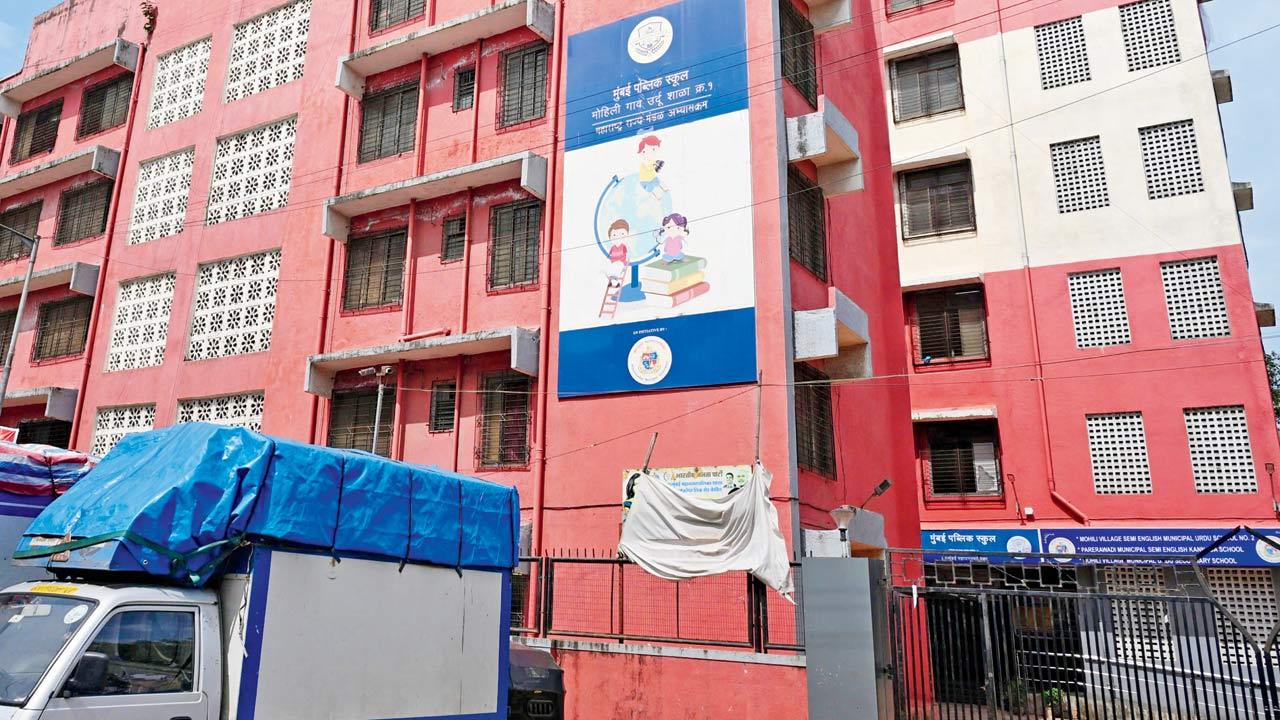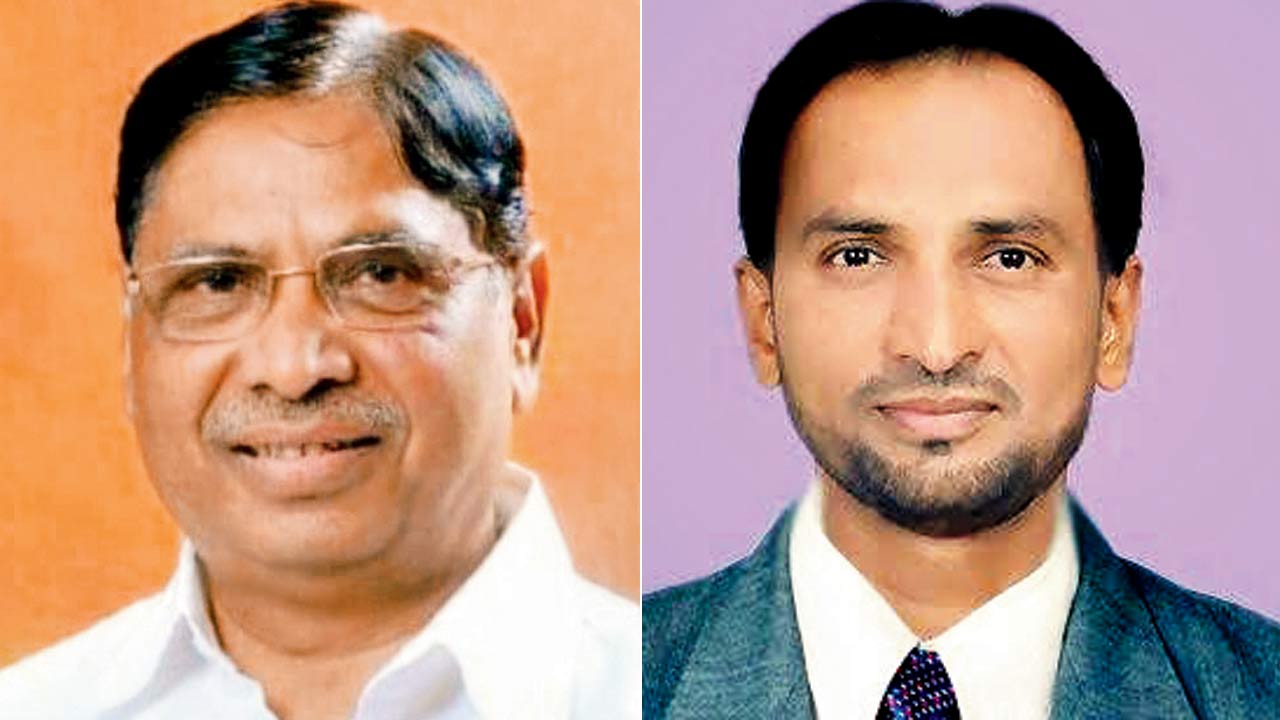Officials say it is time to look beyond language mediums and focus on recruiting teachers based on skills, as Urdu-medium teachers’ associations raise concerns

Mohili Village Urdu school. Pic/Sayyed Sameer Abedi
A new conflict has arisen between the state government and the teachers and management of Urdu-medium schools. As the state government faces mounting criticism for unfilled teacher vacancies, it has accelerated its efforts to fill these positions. However, Urdu-medium teachers’ associations are raising concerns over the appointment of Marathi-medium teachers as English subject teachers in Urdu-medium schools.
Teachers’ associations strongly oppose the move, calling it a misstep. They argue that appointing teachers unfamiliar with Urdu undermines the quality of education in Urdu-medium schools. In response, the government has defended its decision, stating that recruitment should prioritize teachers’ skills and subject specialisation, rather than the medium of instruction in the schools where they are posted.
 Sayyed Sharief
Sayyed Sharief
The ongoing teacher recruitment process in Maharashtra is currently in its third phase. So far, over 11,000 teaching posts in zilla parishads, municipal corporations, municipalities, and government-aided schools across the state have been filled during the first phase of recruitment.
Nearly 500 posts for English teachers in Urdu-medium schools have been filled by candidates from non-Urdu-medium backgrounds. As of the 2021-2022 academic year, there were 4,900 Urdu-medium schools in Maharashtra, with Mumbai Suburban district hosting the second-highest number of such schools (303). In Mumbai, there were 95 Urdu-medium schools. This number has since increased to 5,500 schools by the 2023-2024 academic year.
 Mohili Village Urdu school in Sakinaka. Pic/Sayyed Sameer Abedi
Mohili Village Urdu school in Sakinaka. Pic/Sayyed Sameer Abedi
Sayyed Sharief, state president of the All India Ideal Teachers Association (AIITA), said, “If the students are Urdu-speaking, then teachers from the Urdu medium who know both English and Urdu will be best suited. The same concept can have different expressions in Urdu and Marathi or other languages. To enhance the quality of English education in non-English schools, teachers need to explain concepts and rules of English in Urdu for better understanding. How will a teacher who speaks only English, Marathi, or another language do that?”
Sharief further added, “Why is the government taking these steps when it has been promoting the use of mother tongue in schools? Our demand to prioritise Urdu-medium teachers for Urdu-medium schools was met in rural areas. Why is it not possible in cities like Mumbai?”
 J M Abhyankar, member, Maharashtra Shikshak Sena, Sajid Nisar Ahmed, general secretary, Akhil Bhartiya Urdu Shikshak Sangh
J M Abhyankar, member, Maharashtra Shikshak Sena, Sajid Nisar Ahmed, general secretary, Akhil Bhartiya Urdu Shikshak Sangh
Sajid Nisar Ahmed, Founder and General Secretary of Akhil Bhartiya Urdu Shikshak Sangh, said, “The ongoing recruitment is part of the state government’s 2022 teacher hiring campaign, with appointment letters issued in February 2023 for the first phase. Of the 550 candidates assigned to Urdu-medium schools, 258 were from non-Urdu-medium schools. Despite objections, the government argued that medium-specific recruitment wasn’t necessary for English teachers. However, 215 non-Urdu-medium teachers were placed in full Urdu-medium schools. In the second phase, starting January 2024, the number of non-Urdu-medium teachers grew, with 78 in Ratnagiri, over 110 in Mumbai, and 69 in Raigad. The third phase began in August 2024 and is ongoing.
Representatives of the Maharashtra Shikshak Sabha met with Education Minister Deepak Kesarkar in February this year and presented a memorandum outlining their demands. The associations have been advocating for the recruitment of candidates who have completed their education in the same medium as the schools they will be teaching in.
They reference Clause 7 of a circular issued by the Education Department on September 18, 2023, which states that only candidates who have received education in a particular medium by the 10th grade should be recruited to teach in schools of that medium.
However, Commissioner of Education, Suraj Mandhare, addressed these concerns, telling Mid-Day, “While recruiting candidates, we followed all the rules under a Government Resolution (GR) issued in 2013. Instead of focusing solely on the medium in which they completed their education, we prioritised their specialization in English and their teaching skills.”
J M Abhyankar, from Maharashtra Shikshak Sena and MLC from the Mumbai teachers’ constituency, said, “While I understand there are concerns, this situation needs to be adjusted, and teachers must use their skills to teach students in Urdu medium schools. Urdu and Hindi, in my opinion, are not very different. Teachers can explain technical terms and concepts to the students in Hindi. However, it would be unfair if these recruitments are cancelled.
When contacted, one of the newly recruited teachers told mid-day, “There’s no issue in teaching. These are Urdu-medium students, and while there are occasional challenges in explaining things, I generally explain in Hindi or seek help from colleagues.”
A senior official from the state school education department, said, “This is simply insecurity among a handful of people worried that Urdu-medium candidates will lose out on jobs to non-Urdu-medium recruits. There’s no real issue here. The matter is being blown out of proportion.”
95
No. of Urdu medium schools in Mumbai
 Subscribe today by clicking the link and stay updated with the latest news!" Click here!
Subscribe today by clicking the link and stay updated with the latest news!" Click here!










